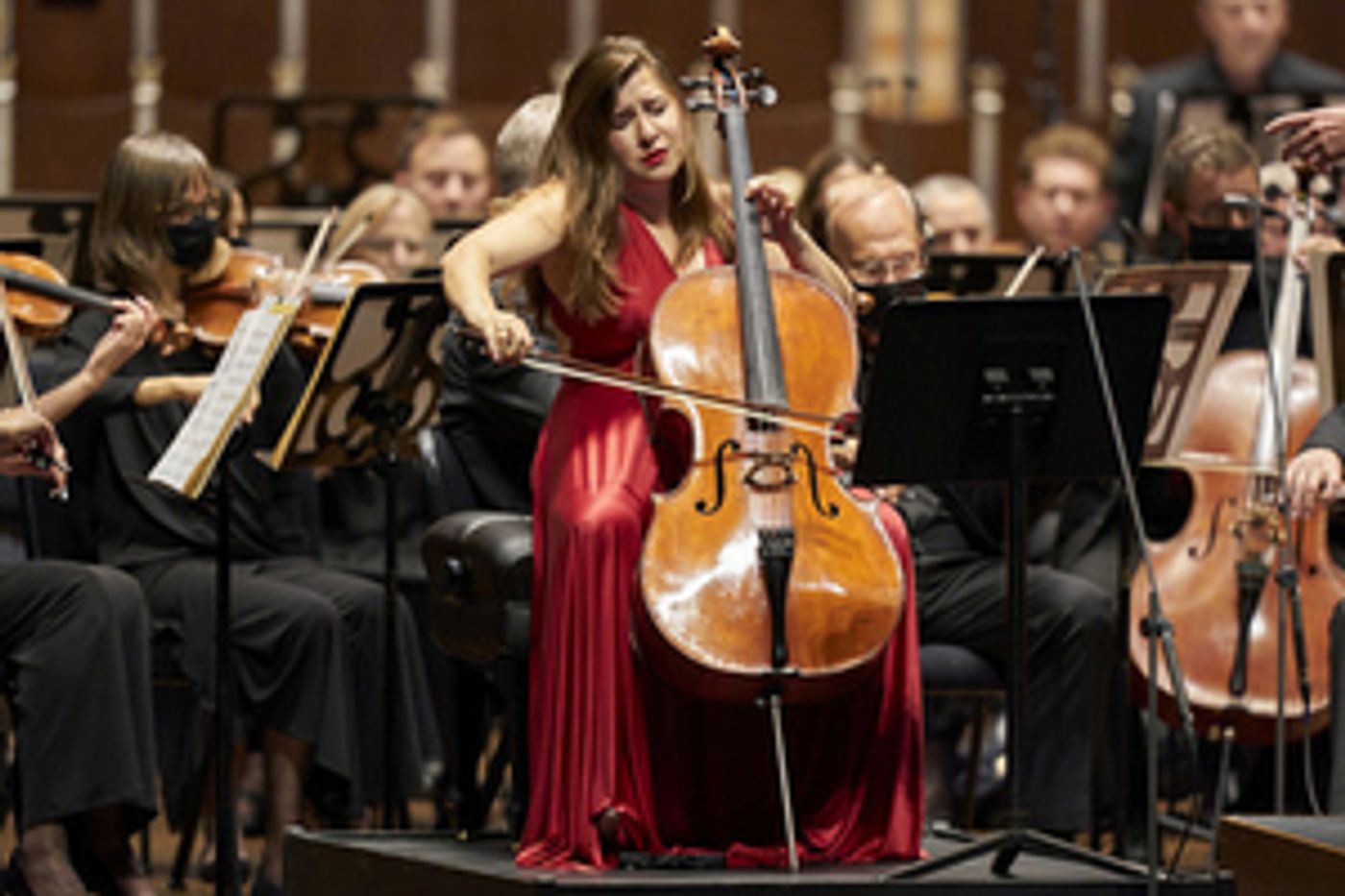Review: NEW BEGINNINGS (CLEVELAND ORCHESTRA) at Jack, Joseph And Morton Mandel Concert Hall
Appreciative audience welcomes Cleveland Orchestra back to Severance Music Center

As I glanced around the gorgeous, newly renamed Jack, Joseph and Morton Mandel Concert Hall, in The Severance Music Center, my thoughts flashed back several years to a visit to New York City and a tour of Carnegie Hall.
Upon entering the Stern Auditorium, the largest performance space of the prestigious entertainment mega center, a member of our group said, "This must be the most beautiful performance space in the country." Our tour guide, a typical outspoken New "Yawker" quickly said, "Nope, the best classically designed facility is Severance Hall in Cleveland."
Later in the tour, when the topic of best American orchestras was brought up, the guide stated, "The New York Philharmonic and Boston Symphonic are good, but the Cleveland Orchestra is better."
My goodness, we were in the presence of a Clevelandophile.
Not only this docent, but The New York Times has declared "Cleveland [Orchestra] under Welser-Möst's direction is America's most brilliant orchestra." It went on to praise its "virtuosity, elegance of sound, variety of colors and chamber-like musical cohesion."
Yes, there are many great music venues. There are many fine orchestras. A visit to the home and performance of "our" orchestra, only reenforces what a set of treasures CLE has. How proud we should be of what this city's philanthropists and citizens, and the on-going Boards of Directors, have created.
The return to a live performance program, "New Beginnings," staged on October 14 and 17, just reinforced the orchestra's masterful sound and ability to captivate an audience.
The program opened with Richard Strauss's "Macbeth, Opus 23," a tone poem based on Shakespeare's tragedy.
The epic sounding piece is credited with marking a turning point in Strauss's career, was the first of his cannon of tone poems, and is considered to be the defining example of this type of music.
This playing was the first time that the orchestra has performed the powerful "Macbeth."
The writing has a fascinating pattern. Each major character is represented by a unique musical theme. King Duncan is signified by a striding musical sound. "Macbeth and Lady Macbeth have their own themes that merge when their shared ambitions work to the same end." The swirling sounds of the duos demise is the piece's climax.
This single movement composition was meticulously performed under the baton of Franz Welser-Möst, in his twentieth year of his much-praised tenure.
Joan Tower, the composer of "A New Day," the second offering, was co-commissioned to write the piece by the Cleveland Orchestra for cellist Alisa Weilerstein."
Tower, who is credited with being a primary force in encouraging women classical composers says of the piece, which reflects on her marriage, "I realized that our long time together was getting shorter, becoming more and more precious with each new day."
The composition's four movements, each representing separate episodes in a day, runs about 25-minutes in length, and was being played for the first time before an audience.
After an encompassing first movement, the tonal contemporary sounds faded into two movements of rather static music, transitioning into a solid ending.
Alisa Weilerstein, celloist ordinaire, clothed in a bright red gown, not only proved her musical skills, but also her showmanship. Her facial expressions, both when she was playing or listening appreciatively to the orchestra, displayed animation, changing with the moods of the music. She is deserving of her title as "one of the foremost cellists of our time."
The piece ended with a standing ovation from the appreciative audience and three curtain calls for the orchestra, the composer, who was in attendance, and for the celloist.
Sergei Prokofiev's "Symphony No. 5, in B-flat major, Opus 100," is noted as "a personal reflection, showcasing the composer's facility with melody and rhythmic invention."
The composer, though not considered as musically gifted as his fellow Russians, Tchaikovsky or Rachmaninoff, tends to write in more modern terms, often including sounds and melodic inventions not found in Russian or for that matter, other compositions of his time.
Symphony No. 5 is tuneful, energetic and engaging. There is a delightful quality to the composition that was evident in Welser-Möst's energetic direction and the postures and facial expressions of the musicians.
During an intermission in the performance, Joela Jones, long-time primary keyboardist, who has announced her retirement, was awarded the Cleveland Orchestra Distinguished Service Award.
For information about future Cleveland Orchestra concerts and to purchase tickets go to:
Be aware that everyone who enters Severance for concerts and events will be required to show proof of full Covid-19 vaccination. Guests who are unable to be vaccinated or are ineligible will be required to provide proof of negative Covid PCR test taken within 72 hours of entry. In addition, face masks are required.
Reader Reviews
Videos

